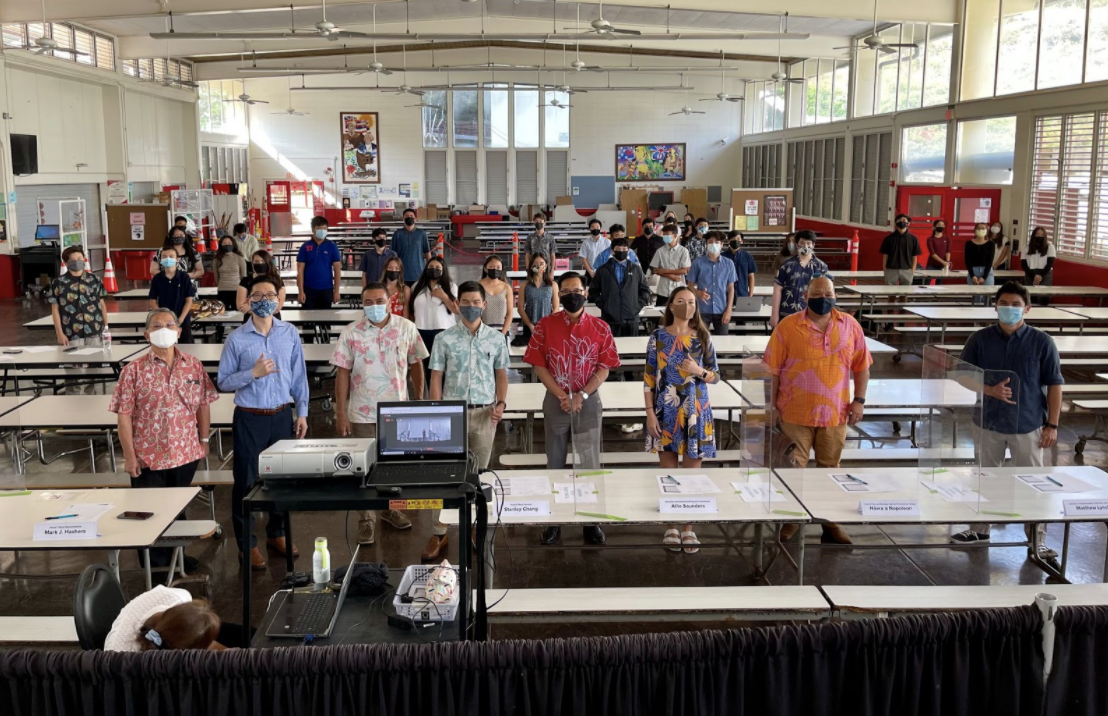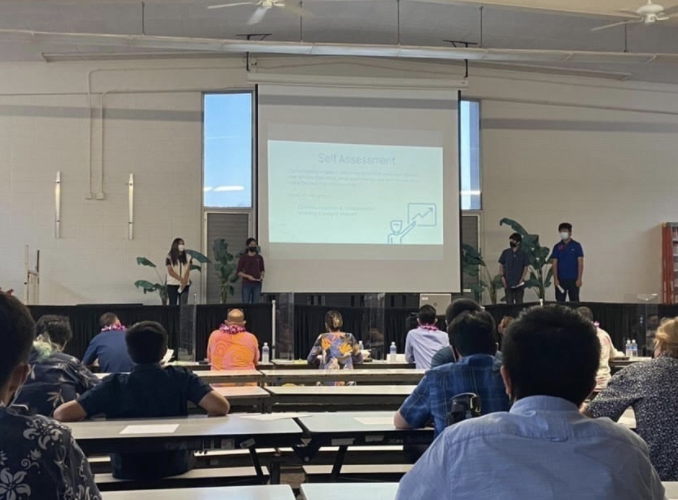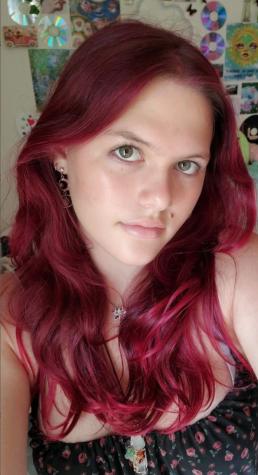Freshman Sustainability Projects Come To An End With Presentations

Kalani freshmen from the Imi Loa house presented their sustainability projects this Monday and Tuesday, May 17 and 18. The presentations took place in the Kalani High School cafeteria, where the students presented to a panel of esteemed judges. Among this group were Hawaii State Senator Stanely Chang and local politician Keith Amemiya.
Students began putting their projects together in January and have spent the last several weeks of the academic year reflecting on the experience and preparing their final presentations.
For their project, Genesis Onoyama (9) and her group addressed the issue of plastic pollution by creating a website to help spread awareness of its impacts.
They encountered several roadblocks while designing their project. Originally, they aimed to ban all single-use plastics at Kalani but eventually narrowed their focus to single-use plastic utensils.
“After that, we found out the state had already banned plastics at schools, so we had to change our project with like, only a month left before presentations,” Onoyama said.
When speaking of her experience, Onoyama explained that she wished her teachers had been “more involved” in the process.
The sustainability project is unique to the Imi Loa freshman house. Imi Loa teacher Jan Omura explained that the idea for this assignment stemmed from her experience at a professional development course where she and previous house teacher Kenneth Okawa learned about a curriculum called Project Wayfinder.
The curriculum focused on finding purpose within the different aspects of your life.
“We learned that the earlier students can start thinking about this and being mindful about the choices they’re making concerning their academics and their learning, the happier they’ll be,” Omura said.
Leanne So (9) recognized the benefit of the experience.
“I feel like this experience was very eye-opening and it provided a good learning opportunity about teamwork and just cooperation as a whole.”
Her group created a homemade hydroelectric generator that people can make out of easy-to-access materials and common household items.
“We chose this idea to promote the use of this renewable energy source and overall decrease the use of fossil fuels,” So explained.
She said that under the circumstances many aspects of the project were challenging.
“Honestly, I wasn’t a big fan of it because, although it opened new learning experiences and new ways I could help the environment, it was difficult because of the COVID crisis,” So explained. “It was hard to communicate with each other and get together to actually build our design.”
However, she expressed the importance of the project regardless.
“I think that it’s important for freshmen to have these projects because it really teaches them about the impact you can make no matter how young you are or how old you are, and it improves the environment,” she said.

Omura explained that this doesn’t just apply to students receiving the best grades or performing perfectly academically, but that “they’ll be happier people overall.”
“The more aligned to your purpose you are with everything in your life, I think the more satisfied you’ll be with your life,” Omura emphasized. “That’s why, after going to this professional development, we developed this sustainability project… to help kids discover what they’re passionate about [and] what they’re not passionate about.”
Omura said that before undergoing this experience many students are unsure of their passions. Through the sustainability project, students can pinpoint what inspires them.
“Maybe they thought they really loved the ocean, but after doing this project they’re like ‘maybe I’m not that passionate about the ocean’, or ‘maybe I don’t care that much about pollution as I thought I did’,” Omura explained. “But it’s still a step. In either direction, it’s still a step in kind of sorting that out.”
She described the experience that freshmen undergo throughout this project as vital in developing necessary academic and life skills.
“It’s not so much the importance of sustainability, but the importance of the year-long project itself,” Omura said. “So, the process; learning how to collaborate, to cooperate with a team, [and] how to time manage.”
The project is almost entirely self-directed by students. They must be able to work in groups to come up with a solution that actively addresses a current world issue. Students then create and implement an action plan that guides them through the process of achieving this goal.
“I think the sense of accomplishment at the end of the year makes it all worth it,” Omura explained. “Whether they finished their completed projects or not, that sense of ‘we did something really big’ and ‘we presented this to a lot of important people’ I think is something that they’ll take with them wherever.”
You can watch a recording of the presentations at the links below.
May 17 (Presentations start at 50:10): https://www.youtube.com/watch?v=WHxqbkD1BOA
May 18 (Presentations start at 5:23): https://www.youtube.com/watch?v=eBIBz5-32iU

Lily is a senior and will be writing all the news you read in a few years-- if not sooner.

